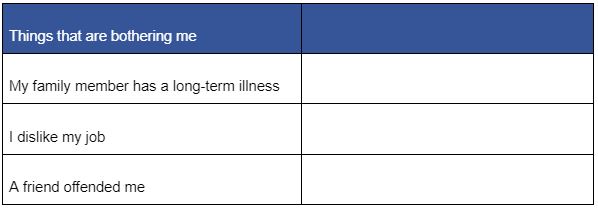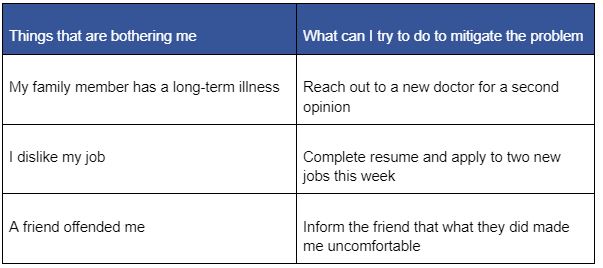With a steady rise in cases of depression being reported throughout the country, I thought it might be interesting to examine how Stoicism, a philosophy which aims to increase joy, might help those struggling with depression. So, how are Stoicism and depression related?
Stoicism focuses on what we can and cannot control. Because we, as humans, tend to focus on achieving things that are not fully within our control, Stoicism tends to emphasize how to be at peace in a world where we cannot get everything we want.
Take for example, a quote from Marcus Aurelius:
“If you are pained by any external thing, it is not this that disturbs you, but your own judgment about it. And it is in your power to wipe out this judgment now. (Book VIII)”
And so, the most obvious way to use Stoicism to tackle depression is to simply stop trying to control things that cannot be controlled. Have you lost someone close to you? Didn’t get a job? Got broken up with? All those events, at least in part, are not in your control. And treating them like they are will only make it worse.
There are many wonderful articles on the internet discussing letting go of control and how it can help you with your life. But for this article, I’d like to look at the other side of the equation. Stoicism is about learning what we can and cannot control, not just about what we cannot. At the moments that we are most depressed and feeling the most helpless, I believe that reflecting on the aspects of our life we have control over might be one of the best ways to start improving.
Learned Helplessness and Depression
Learned helplessness is a phrase coined by Dr. Martin Seligman based on a study he performed on dogs. In the study, Dr. Seligman tested three groups of dogs. One group received an electric shock, but could stop the shock with a button. Another group received a shock, but couldn’t stop it, and the third received no shock at all.
In the second phase, Seligman shocked the groups again, allowing each group to jump a wall to avoid the shocks. While the first and third groups jumped, the second group, which couldn’t escape the shocks the first round, did not. The dogs that didn’t act also exhibited symptoms similar to those that we see in humans with depression. Since then, scientists have examined the link between learned helplessness and depression.
The results of the study suggest that depression can start when a person does not feel in control of their own lives. And worse, those feelings can cause a depressed person to be less likely to take action to solve problems in their life, even when they have the ability to do so.
Depression – Feeling Like You Don’t Have Control
When I first read the study, I couldn’t believe how well it fit the cases of depression I’d seen, including my own. While some cases seemed to be caused by purely biological factors, more seemed to occur when a person started to feel like they lost control over major areas of their life.
Notice that I used the word “areas” and not “an area.” Depression, at least to me, seems to become far more likely when a person is facing hardship on multiple fronts.
For example, someone might be able to cope with a family member having cancer, but depression sets in when they must deal with the family member having cancer and they are having trouble finding a romantic partner. Someone can handle not having a significant other, but they are more likely to suffer from depression when they cannot find a significant other and they cannot find a job.
Stoicism and Depression – Overcoming Learned Helplessness
Given that depression can stem from feelings of not being in control of our life, I’m hesitant to use the more popular strategies of Stoicism that focus on accepting what we can’t control to combat depression. It’s like telling a depressed person, Hey, you’re actually in less control of EVEN MORE parts of your life than you thought. I’m worried that approach could reinforce learned helplessness.
Instead, I’m more inclined to focus on the other, less talked about, side of Stoicism: what we can control.
Though we can’t control everything, we can control some things. This is where I think Stoicism and depression are related.
Stoicism and Depression – What You Can Control
When I feel depressed, I make a table. In the first column, I write down all the things that are making me feel down.

And in the second column, I write one thing in my control I can do to make that problem better. The key word here is try. We can’t always control the outcome of our actions, but we do control performing the action in the first place.


My thought is this: affirming that I have agency and reasserting control where I can could be an antidote to learned helplessness.
No, it doesn’t always “work.” The things I try fail, and I stay depressed.
But what I have noticed is, over time, I do feel more in control of my life. I know that whatever may happen to me, I’ll do what is in my power to face it.
And that, over time, has made me feel less helpless and less depressed.
What is it that you are facing? And what is just one thing you can do in your power to make things less terrible?
Cut Out the Bad
Though depression can be caused by many factors, I notice that when people are depressed, they’re sometimes hanging onto a situation when it’s better just to let it go.
For example, a person might have a truly terrible relationship with a parent, one that they know is best to leave behind. Feeling honor-bound to help that parent, however, they maintain the relationship and it continues to harm their well-being.
Though it’s so hard, when you find yourself stuck in a situation you wish you could end, end it. End the relationship, change schools, find a new friend.
In the darkest period of my life, I realized I was clinging to relationships that were making me miserable. Even though I didn’t want to end them and felt guilty cutting important people out of my life, it was the best decision I ever made. Only after I let go of some relationships did I realize that I was really making space for better relationships to flourish. Sometimes you have to move backward to move forward.
Marcus Aurelius sums up this thought nicely:
“The cucumber is bitter? Then throw it out. There are brambles in the path? Then go around. That’s all you need to know.” (Book VIII)
If you feel stuck, sometimes it’s best just to move on.
What Reaffirming Control Does Not Mean
Having spent the entirety of my adult life dealing on and off with close friends and family with depression, helping someone see what they can control is an extremely difficult task.
By implying you have control over aspects of your life, I am not suggesting that you caused your own depression.
For example, if you said, “I can’t find a romantic partner” and I suggest that you use a dating app, you might take my suggestion as, “You can’t find a romantic partner because you didn’t use a dating app.” Or if I suggest exercising to feel better, you might think I mean, “You are depressed because you don’t exercise.” Even though neither of those statements is true.
Like the helpless dogs in the second group, you likely couldn’t control the events that caused you to become depressed. But you can likely try to heal.
Think about a friend that broke their leg because a drunk driver hit them while crossing the street. Would you blame your friend for breaking their leg? Surely not. If you advised your friend not to put weight on that leg to help it heal, would your friend think you are suggesting they broke their leg because they were putting weight on it? Not at all.
The same is true with depression.
A Stoic Way of Combatting Depression
When depressed, certainly try classic Stoic exercises to combat it: negative visualization, momento mori, and reflecting on what you cannot control.
But also remember what you can control.
You are powerful: you can feed the hungry, heal the sick, make children smile, and offer friends encouragement. You can overcome grief, face your fears, leave negative relationships, and try to build new ones. When it comes to depression, we can’t always control the outcome, but we can try our best to fight it.
And just trying might make all the difference.



